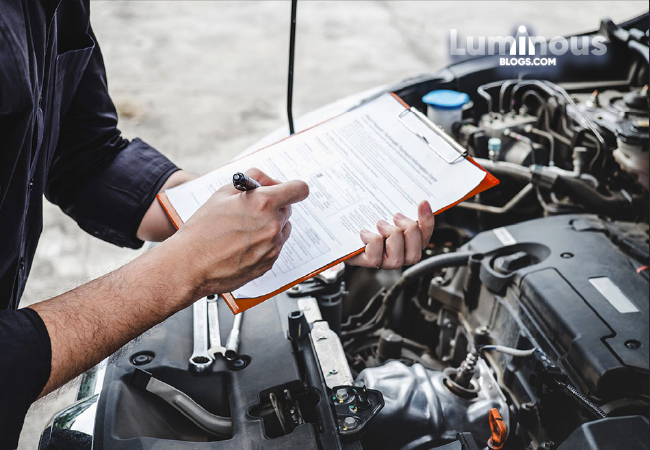
Car Care 101: Essential Maintenance Tips
Owning a car is a significant investment, and proper maintenance is the key to ensuring it runs smoothly, remains safe, and retains its value. In this blog, we'll explore essential car care tips to help you keep your vehicle in top condition. Whether you're a seasoned car owner or a new driver, these maintenance practices will help you take care of your vehicle and extend its lifespan.
Regular Oil Changes: Engine Lifeline
Oil is the lifeblood of your car's engine, and regular oil changes are crucial to its health. Check your car's owner's manual for the recommended oil change interval, but a general rule of thumb is every 3,000 to 5,000 miles. Fresh oil helps keep your engine lubricated, cool, and running efficiently.
Tire Maintenance: Traction and Safety
Tires are a vital component of your car's safety and performance. Check the tire pressure regularly and maintain it within the manufacturer's recommended range. Over or underinflated tires can affect fuel efficiency and handling. Don't forget to inspect the tread for wear and tear, and replace tires when the tread depth becomes insufficient.
Brakes: Your Stopping Power
Regular brake maintenance is crucial for your safety on the road. Pay attention to signs like squeaking or grinding noises, a spongy brake pedal, or reduced braking efficiency. Brake pads and rotors may need replacement periodically. Don't delay brake repairs, as failing brakes can lead to accidents.
Fluid Checks: Keep Things Flowing
Various fluids are essential for your car's operation, including coolant, transmission fluid, brake fluid, and power steering fluid. Regularly check fluid levels and quality, and ensure they are at the right levels. If you're unsure, consult your car's manual or a mechanic for guidance.
Battery Health: Stay Powered Up
A weak or dead battery can leave you stranded. Clean the battery terminals regularly, and check the battery's voltage using a multimeter. If the battery is aging or struggling, it's wise to replace it before it fails unexpectedly.
Air Filters: Breathe Easy
Air filters prevent contaminants from entering your engine or cabin. Depending on your vehicle, you may have both engine and cabin air filters. Regularly inspect and replace them when they become clogged or dirty, which can impact engine efficiency and air quality.
Regular Washes and Wax: Protect Your Paint
A clean car not only looks better but also retains its value. Regularly wash your car to remove dirt and contaminants. Additionally, waxing your car provides a protective barrier against UV rays, rust, and environmental damage.
Scheduled Maintenance: Follow Your Car's Plan
Consult your car's owner's manual for a maintenance schedule. Stick to the recommended service intervals for tasks like engine tune-ups, filter replacements, and inspections. Properly maintained vehicles tend to be more reliable and last longer.
Belts and Hoses: Keep Them Intact
Check the condition of belts and hoses under the hood. Over time, they can become cracked or brittle, potentially leading to engine problems or overheating. If you notice any signs of wear or damage, have them replaced.
Keep It Clean: Interior Care
Car maintenance isn't limited to the mechanics under the hood. Keep the interior clean and well-maintained. Regularly vacuum the upholstery and carpets, clean the dashboard and windows, and protect the surfaces from UV damage to maintain the car's resale value.
Cooling System: Prevent Overheating
Your car's cooling system is crucial to prevent engine overheating. Regularly check the coolant level and the condition of hoses and the radiator. Over time, coolant can become acidic and less effective, so it's essential to flush and replace it per your car's service schedule.
Suspension System: A Smooth Ride
The suspension system affects your car's ride comfort and handling. Ensure that the shocks, struts, and springs are in good condition. Signs of a failing suspension system include a bumpy ride, drifting, or uneven tire wear.
Wiper Blades: Clear Vision
Wiper blades are often overlooked until they're needed. Regularly inspect them for signs of wear or streaking. It's essential to have efficient wiper blades to maintain visibility during rain or snow.
Check Engine Light: Listen to Your Car
If your car's check engine light comes on, don't ignore it. The light can indicate various issues, from minor concerns to significant problems. Have the car diagnosed as soon as possible to avoid potential damage.
Tire Alignment and Balancing: Even Tread Wear
Maintaining proper tire alignment and balance ensures even tire wear, improved fuel efficiency, and a smoother ride. Check alignment periodically and have your tires balanced during regular rotations.
Fuel Efficiency: Drive Smart
Your driving habits significantly impact your car's performance and fuel efficiency. Avoid aggressive acceleration and hard braking, and maintain a consistent speed to save fuel and reduce wear and tear on your vehicle.
Keep Emergency Essentials: Be Prepared
In case of a roadside emergency, it's essential to keep emergency essentials in your car. Items like a spare tire, jack, jumper cables, a flashlight, and a first-aid kit can be lifesavers.
Owner's Manual: Your Maintenance Bible
Your car's owner's manual is a valuable resource. It provides information on recommended maintenance schedules, proper tire pressure, and essential troubleshooting tips. Keep it in your glove compartment for easy reference.
Tire Rotation: Equal Wear Distribution
Regular tire rotation ensures even wear across all tires, extending their lifespan. The interval for tire rotation varies by the type of vehicle so consult your car's manual for guidance.
Vehicle Inspections: Professional Expertise
While you can perform many car maintenance tasks yourself, having your car inspected by a professional is essential. Regular inspections can identify potential issues before they become major problems.
Drive Responsibly: Protect Your Car
Your driving habits significantly impact your car's longevity. Avoid harsh acceleration, abrupt braking, and speeding to reduce wear and tear on the engine and braking systems.
Environmentally Friendly Driving: Reduce Emissions
Consider adopting eco-friendly driving habits, such as carpooling, using public transportation, or purchasing a fuel-efficient or electric vehicle, to reduce your carbon footprint and protect the environment.
Conclusion: Caring for Your Vehicle, Extending Its Life
Car care isn't just about keeping your vehicle running; it's about protecting your investment, ensuring safety, and contributing to a more sustainable environment. Regular maintenance can help you avoid costly repairs and keep your car in excellent condition for years to come. By following these essential maintenance tips, you can enjoy a smoother, safer, and more cost-effective driving experience.


